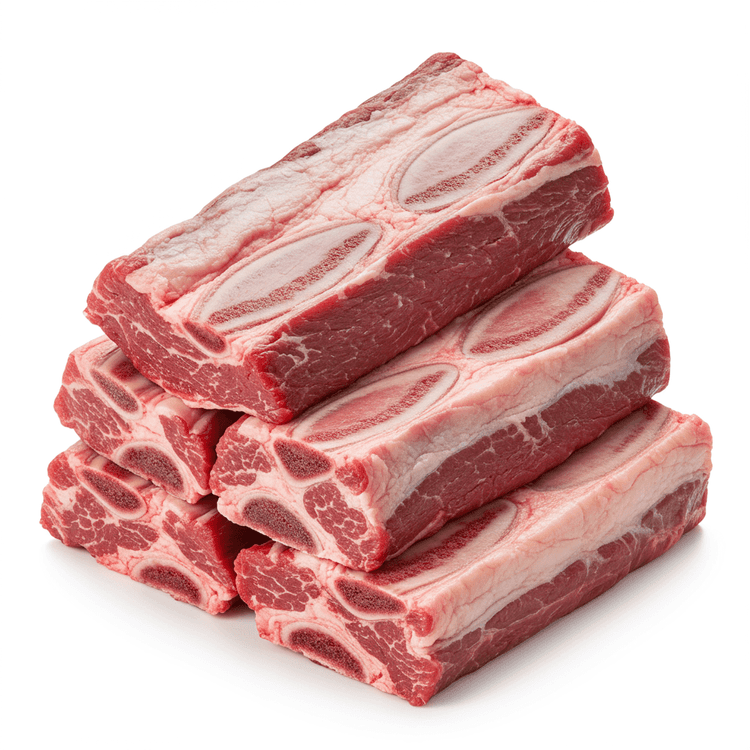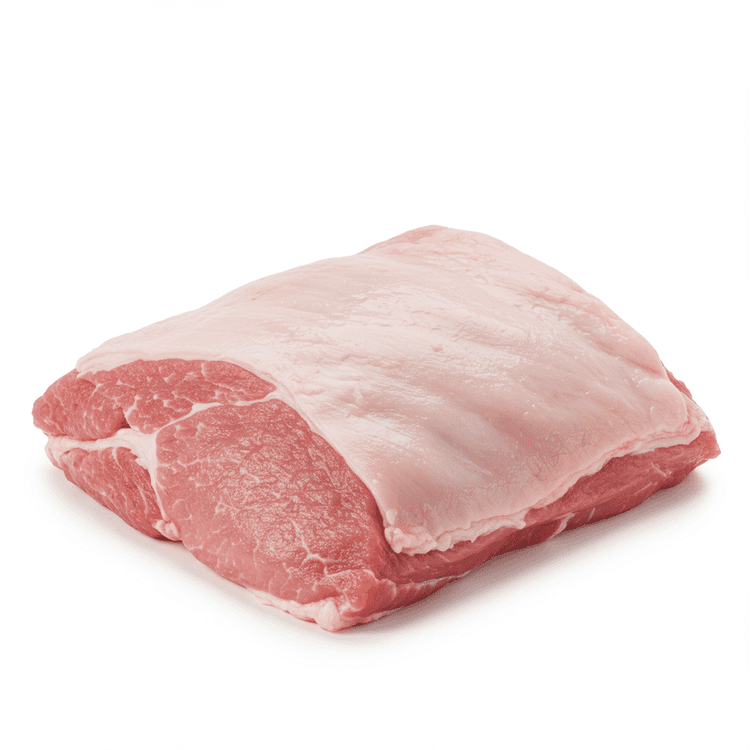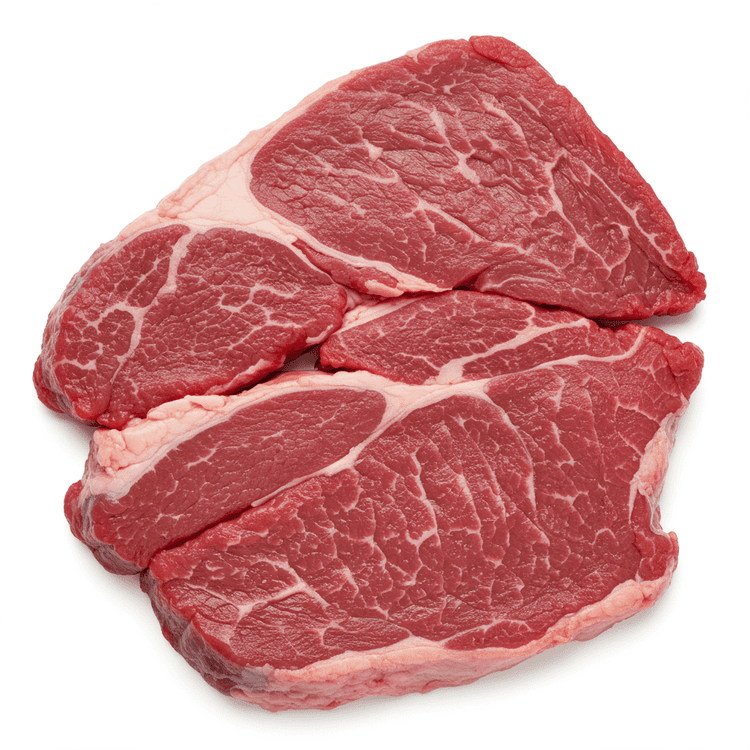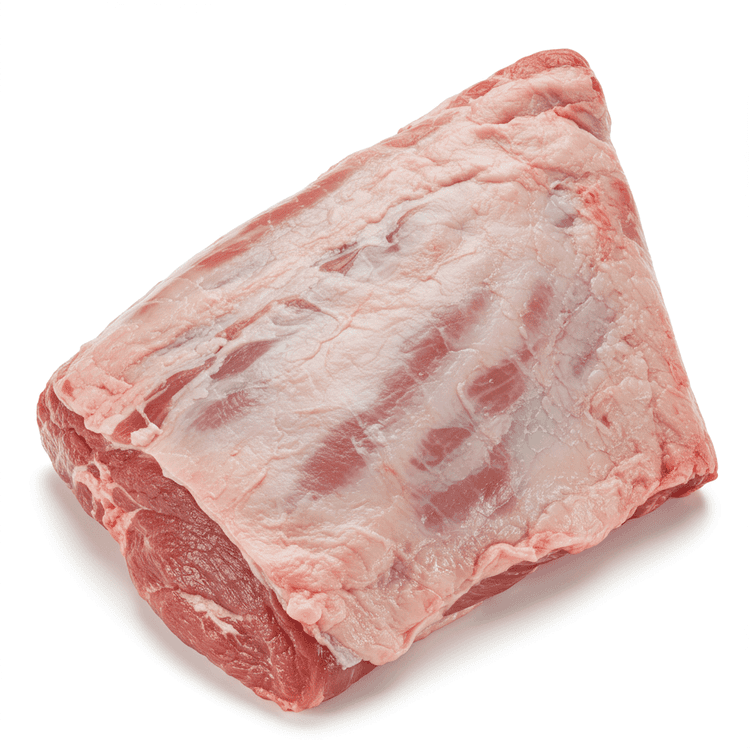
Ribs
Ribs, a popular and flavorful cut of meat, typically pork or beef, are known for their tenderness and rich taste. The meat surrounding the rib bones becomes incredibly succulent when slow-cooked, braised, or grilled. Pork ribs, often from the spareribs or baby back ribs, offer a slightly sweet and fatty flavor. Beef ribs, whether short ribs or back ribs, provide a more robust and meaty taste. Their texture ranges from fall-off-the-bone tender to slightly chewy, depending on the cooking method. The appearance varies with preparation, often featuring a caramelized exterior from smoking or glazing. When prepared right, ribs make an excellent choice for grilling, smoking, or barbecuing.
Common Uses
- Ribs are excellent when slow-cooked or smoked low and slow, creating fall-off-the-bone tenderness and a deep smoky flavor. Many BBQ enthusiasts consider ribs the ultimate smoked meat delicacy.
- Ribs taste great when braised in flavorful liquids like wine, broth, or barbecue sauce, resulting in a tender and moist dish. Braising is an excellent technique for adding depth of flavor.
- Grilled ribs are quick and easy for weeknight meals. Marinate before grilling to add extra flavor and ensure they don't dry out.
- Use rib meat to make delicious pulled pork or beef sandwiches. Shredded rib meat mixed with barbecue sauce is a crowd-pleasing filling.
- Ribs are perfect for making hearty stews and soups, adding richness and depth of flavor to the broth and providing tender chunks of meat.
Health Benefits
- Excellent source of protein, essential for muscle building and repair.
- Rich in iron, supporting healthy red blood cell production and energy levels.
- Contains zinc, crucial for immune function and wound healing.
- Provides vitamin B12, vital for nerve function and DNA synthesis.
- Offers selenium, an antioxidant that protects cells from damage.
- Source of conjugated linoleic acid (CLA), a fatty acid potentially linked to various health benefits.
Chefadora AI is here.
Experience smarter, stress-free cooking.
Storage Tips
Raw ribs should be stored in the refrigerator at a temperature below 40°F (4°C) to prevent bacterial growth. Wrap them tightly in plastic wrap or place them in an airtight container. They can be stored in the refrigerator for 3-5 days. For longer storage, freeze the ribs, properly wrapped, for up to 6-12 months. Cooked ribs can be stored in the refrigerator for 3-4 days or frozen for up to 2-3 months. Always ensure ribs are properly thawed in the refrigerator before cooking to ensure even cooking and reduce the risk of foodborne illness.
Marnirni-apinthi Building, Lot Fourteen,
North Terrace, Adelaide, South Australia, 5000
Australia




